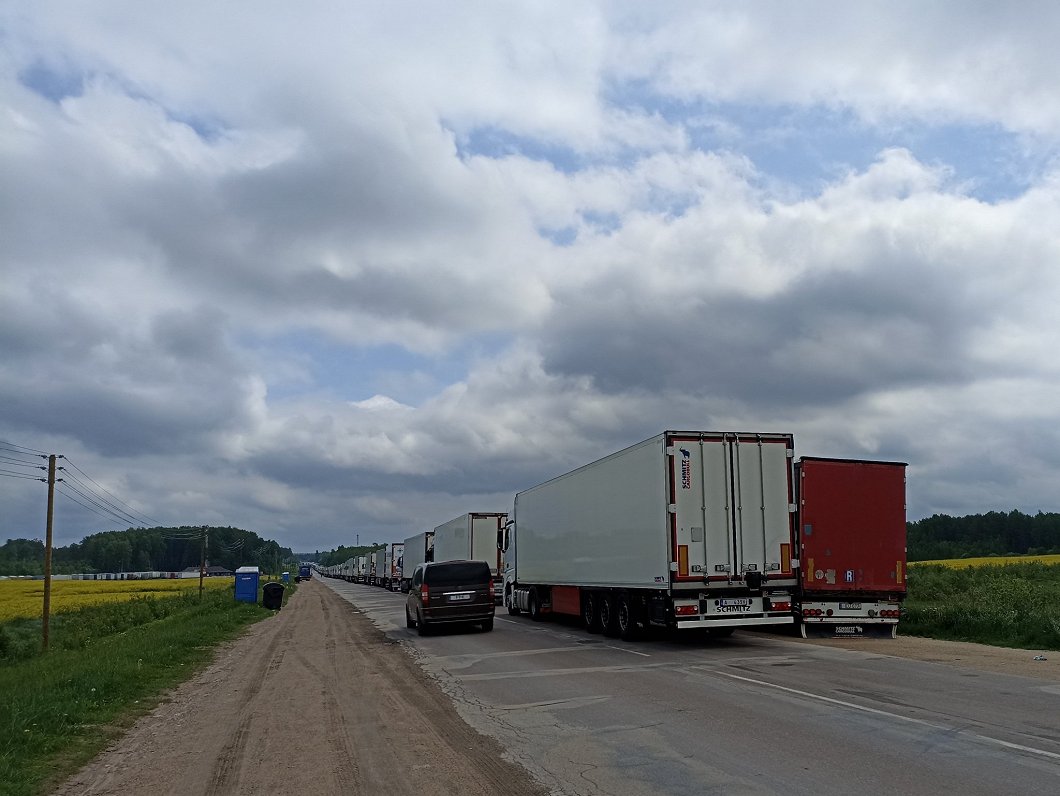The line of trucks is more than two kilometers long with 400 to 600 cars in it. Drivers have to wait three or four days without knowing how quickly the line will move.
“You know, we're forced, we've got a job like that. Sanctions – it's politics, but we suffer. They don't care when they sit in their offices,” said one of the drivers, waiting in line.
“When you go into the shop, you want fresh fruit, vegetables, not ones that have stood on the border for days. But they stand – fruit, vegetables, flowers, meat,” said a driver.
Aivars Šarkovskis, customs supervisor of Terehova's customs control post, said: "This is linked to sanctions with the Russian military invasion of Ukraine, and many carriers were forced to change their cargo routes, towards the European Union [..]."
The sanctions imposed against Russia and Belarus require additional time for customs officials during the control, said Irina Golubeva, deputy supervisor of the Customs Control Point of Terehova and Zilupe.
"The situation is that several Council of Europe regulations have defined goods [..] the export, import or transfer of which to Russia is prohibited or allowed under certain conditions and, for example, limited imports and exports of metal products, iron and steel pipes, various equipment, pipes for oil production, electronics are currently in place," Golubeva said.
On average, one or two trucks cannot cross the border daily because of non-compliance with sanctions. Previously, the number was higher. The queues may be reduced after July 10, the customs supervisor of Terehova said, since after that date a large number of goods will not be imported or exported.




























